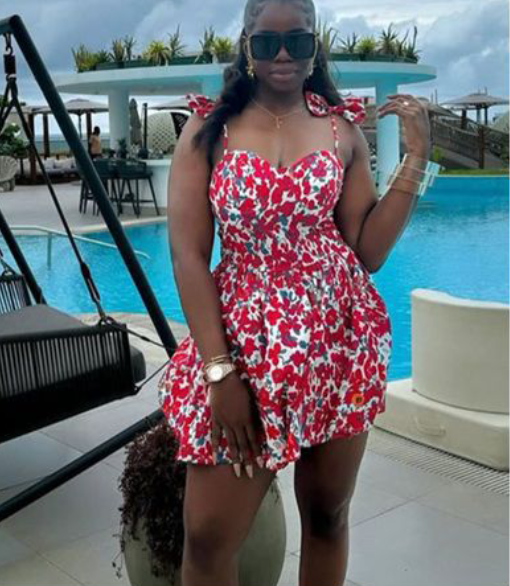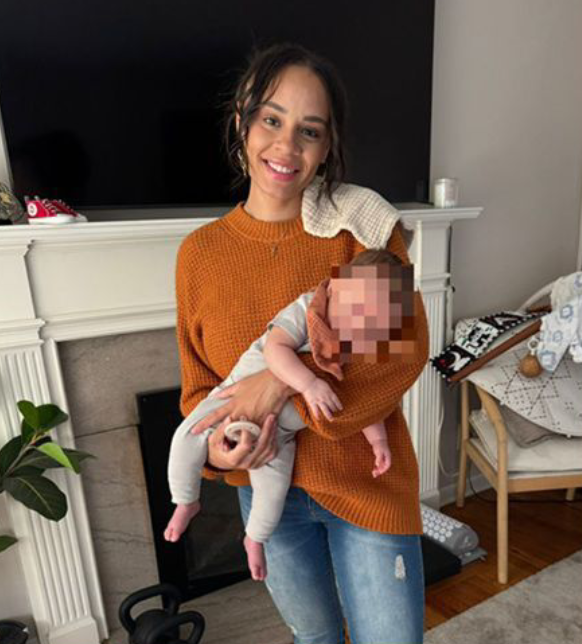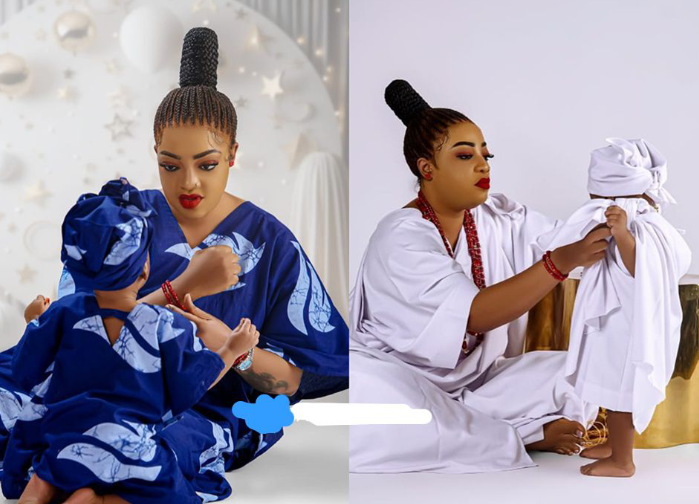
“Let This Be the Last”: Wizkid’s Babymama, Shola Ogudu, Slams Fan Over ‘Wife’ Comment

In the age of social media, even the simplest comments can ignite strong reactions—especially when they touch personal boundaries. This week, Shola Ogudu, the mother of Wizkid’s first son, took a bold stand against a recurring narrative that fans have pushed for years. Known for her quiet strength and independence, Shola made headlines when she firmly addressed a fan who referred to her as Wizkid's “wife” in a comment under one of her posts.
The comment, posted by an Instagram user identified as @biggest_macdon_, read, “Lyawo Ibrahim!! Everyday is a holiday ♡.” At first glance, it seemed like a harmless or even affectionate remark. But for Shola, it represented something deeper—and far more frustrating.
Shola, who has often avoided drama or direct responses to online chatter, made it clear this time that she was no longer willing to let it slide. She responded, “I'm not one to address anything whether true or false… BUT this type comment on every single one of my post is actually very detrimental me actually being 'lyawo somebody' one day.”
Her words were calm but cutting. The message was simple: she’s tired. Tired of being constantly tied to a man with whom she shares a co-parenting relationship but nothing more. Tired of the identity the public insists on stitching to her—one that reduces her worth to a past relationship and undermines her own path forward.
“Constantly commenting sh*t like this is not a good look,” she added. “I actually really and truly dislike it. Let this be the last of this delusional type comment please. Thanks and God bless you.”
The clapback was firm, polite, but emotionally charged—a clear indication that these repeated remarks have weighed heavily on her. It also sparked a conversation across social media platforms about the persistent habit of fans romanticizing or reviving relationships long dead in the real world.
Shola and Wizkid, whose real name is Ayodeji Balogun, share a son, Boluwatife. Their history has played out in the public eye, sometimes messy, sometimes calm—but never returning to romance. While Wizkid has since had other relationships and children, fans remain oddly stuck in nostalgia, constantly projecting a fictional reunion between him and Shola.
To many observers, the assumption that Shola should always be seen as “Wizkid’s woman” is not just lazy—it’s deeply unfair. It overlooks her individual achievements, her personal growth, and her own romantic future. And for a woman who’s never claimed the title of wife, being repeatedly labeled one online feels more like a burden than a compliment.
Her response hit a nerve not just with her own followers, but with many women who related to the experience of being defined by a past relationship. “Let her live her life,” one user tweeted. “She’s not just someone’s ex—she’s her own person.”
This incident also exposes a wider issue with online culture: the blurred lines between admiration, obsession, and disrespect. Social media often makes fans feel like they have ownership over public figures' lives—commenting freely without thought for how those words land or linger. For Shola, the fantasy of her as “Wizkid’s wife” isn’t cute. It’s limiting. And it may even be affecting how future partners view her.
In her brief message, Shola highlighted something profound: that careless comments can have real-world consequences. “This type of comment… is actually very detrimental [to] me actually being ‘lyawo somebody’ one day,” she wrote, drawing attention to how such narratives could negatively shape her personal life.
It’s a reminder that beyond the screen are real people with real emotions and futures. Shola Ogudu’s dignity in handling the moment didn’t just defend her boundaries—it also set a standard for how women, particularly those linked to public figures, can stand up for their right to be seen as more than just someone’s “baby mama.”
Her words weren’t angry, but they were final: “Let this be the last.” A clear, powerful statement from a woman who has every right to move on from the past and claim her own identity—on her own terms.


